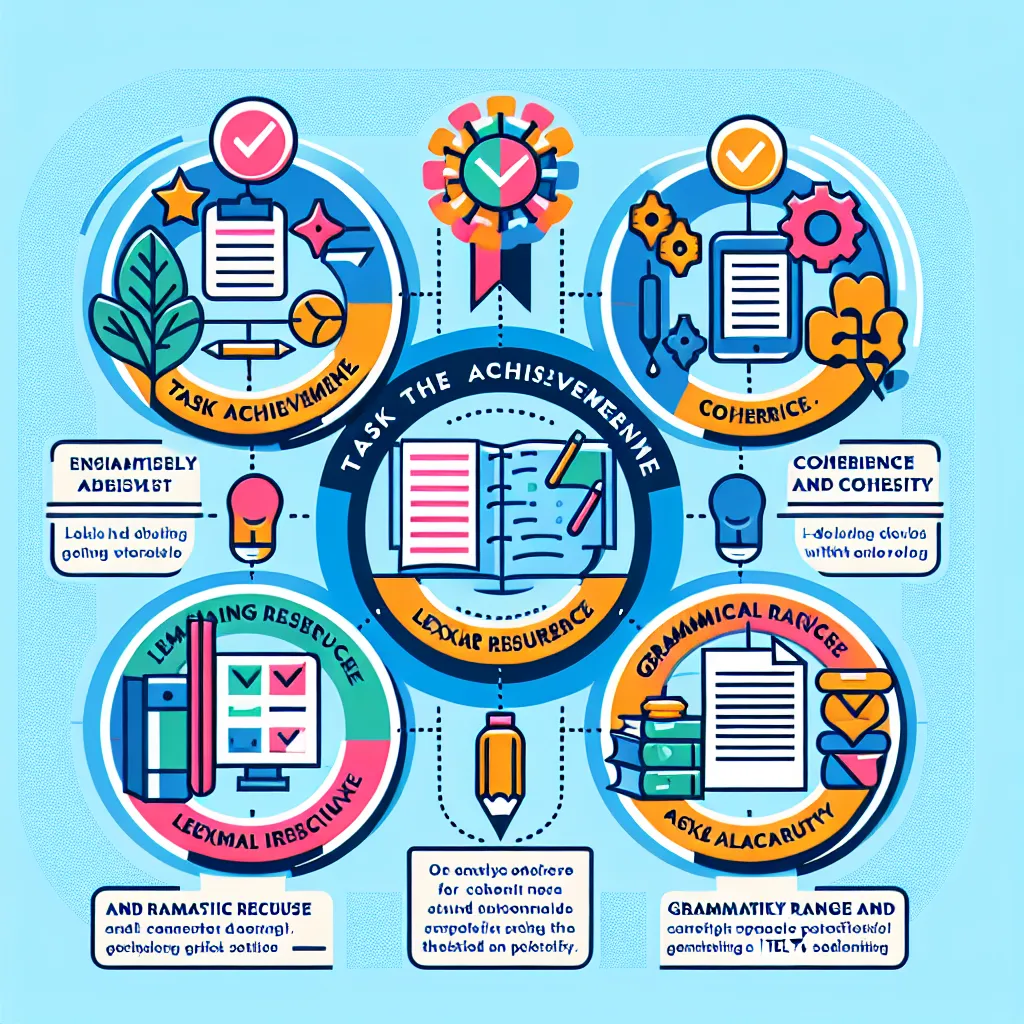Grammar plays a crucial role in the IELTS Writing test, significantly impacting your overall band score. Many test-takers struggle with common grammatical errors, which can hinder their performance and limit their potential. In this comprehensive guide, we’ll explore effective strategies to help you avoid these pitfalls and boost your IELTS Writing score.
Understanding the Importance of Grammar in IELTS Writing
Grammar is one of the four key marking criteria in IELTS Writing, alongside Task Achievement, Coherence and Cohesion, and Lexical Resource. Examiners carefully assess your ability to use a wide range of grammatical structures accurately and appropriately. By mastering grammar, you can enhance the clarity and sophistication of your writing, leading to higher scores across all criteria.
 IELTS Writing Exam
IELTS Writing Exam
Common Grammar Mistakes to Avoid
1. Subject-Verb Agreement Errors
One of the most frequent grammar mistakes in IELTS Writing is incorrect subject-verb agreement. This occurs when the subject and verb in a sentence don’t match in number (singular or plural).
Incorrect: The number of students in universities are increasing.
Correct: The number of students in universities is increasing.
To avoid this mistake:
- Identify the main subject of your sentence
- Determine if it’s singular or plural
- Choose the appropriate verb form to match
2. Incorrect Use of Articles
Articles (a, an, the) often pose challenges for IELTS candidates, especially those whose native languages don’t use them.
Incorrect: I saw elephant at zoo yesterday.
Correct: I saw an elephant at the zoo yesterday.
Tips to improve:
- Use “a” or “an” for singular, countable nouns when mentioning them for the first time
- Use “the” for specific or previously mentioned nouns
- Remember that some nouns don’t require articles (e.g., uncountable nouns like “information”)
3. Tense Consistency
Maintaining consistent tenses throughout your writing is crucial for clarity and coherence.
Incorrect: Yesterday, I go to the store and bought some groceries.
Correct: Yesterday, I went to the store and bought some groceries.
To maintain tense consistency:
- Decide on the primary tense for your essay (usually present for Task 2)
- Use past tense for specific examples or experiences
- Be mindful of tense shifts when necessary (e.g., for conditional statements)
4. Misuse of Prepositions
Prepositions can be tricky, as their usage often differs between languages.
Incorrect: I arrived to the airport on time.
Correct: I arrived at the airport on time.
To improve preposition usage:
- Learn common prepositional phrases as chunks (e.g., “depend on,” “agree with”)
- Pay attention to prepositions in your reading practice
- Use a good collocation dictionary to check correct preposition usage
5. Run-on Sentences and Comma Splices
Long, poorly punctuated sentences can confuse readers and lower your coherence score.
Incorrect: The city is beautiful it has many historical buildings.
Correct: The city is beautiful. It has many historical buildings.
Or: The city is beautiful, and it has many historical buildings.
To avoid this:
- Keep sentences concise and focused on one main idea
- Use appropriate punctuation (periods, semicolons, or coordinating conjunctions) to separate independent clauses
- Vary your sentence structure to maintain reader interest
Strategies for Improving Grammar in IELTS Writing
1. Regular Practice and Self-Review
Consistent practice is key to improving your grammar skills. Write essays regularly and review them critically, focusing on identifying and correcting grammatical errors.
2. Use of Grammar Checkers
While not infallible, grammar checking tools can help you spot potential errors. However, always double-check their suggestions, as context is crucial in determining correct usage.
3. Read Extensively
Reading high-quality English texts can significantly improve your grammar intuition. Focus on academic articles, reputable news sources, and well-written essays to expose yourself to correct grammatical structures.
 Extensive Reading
Extensive Reading
4. Learn from Feedback
If you have access to a teacher or tutor, pay close attention to their grammar corrections. Keep a log of your common mistakes and actively work on eliminating them in future writing.
5. Master IELTS-specific Grammar Points
Some grammatical structures are particularly valuable in IELTS Writing:
- Conditional sentences for discussing hypothetical situations
- Relative clauses for providing additional information
- Passive voice for describing processes or impersonal statements
- Comparative and superlative forms for making comparisons
Practice incorporating these structures into your essays to demonstrate range and accuracy.
Important Considerations
- Quality over Quantity: Using complex structures incorrectly can harm your score more than using simpler structures accurately. Aim for a balance of accuracy and complexity.
- Time Management: Allocate time for proofreading your essay. Many grammatical errors can be caught and corrected with a careful review.
- Context Matters: Remember that grammar rules can sometimes be bent in certain contexts, especially in informal writing. However, for IELTS, it’s best to adhere to standard grammatical conventions.
Next Steps
To further enhance your grammar skills for IELTS Writing:
- Create a personalized grammar error log based on your practice essays
- Set specific goals for each writing session (e.g., “Use relative clauses correctly in at least three sentences”)
- Practice timed writing to simulate exam conditions
- Seek feedback from experienced IELTS tutors or join study groups for peer review
By focusing on these common grammar mistakes and implementing these strategies, you can significantly improve your IELTS Writing performance. Remember, perfect grammar takes time and practice to achieve. Stay persistent, and you’ll see improvements in your writing clarity, accuracy, and overall band score.
[internal_links]
- IELTS Writing Task 1: A Step-by-Step Guide
- Top 10 IELTS Writing Tips for Task 2
- How to Improve Your IELTS Writing Score: Expert Strategies
- IELTS vs TOEFL: Which English Proficiency Test Should You Take?




